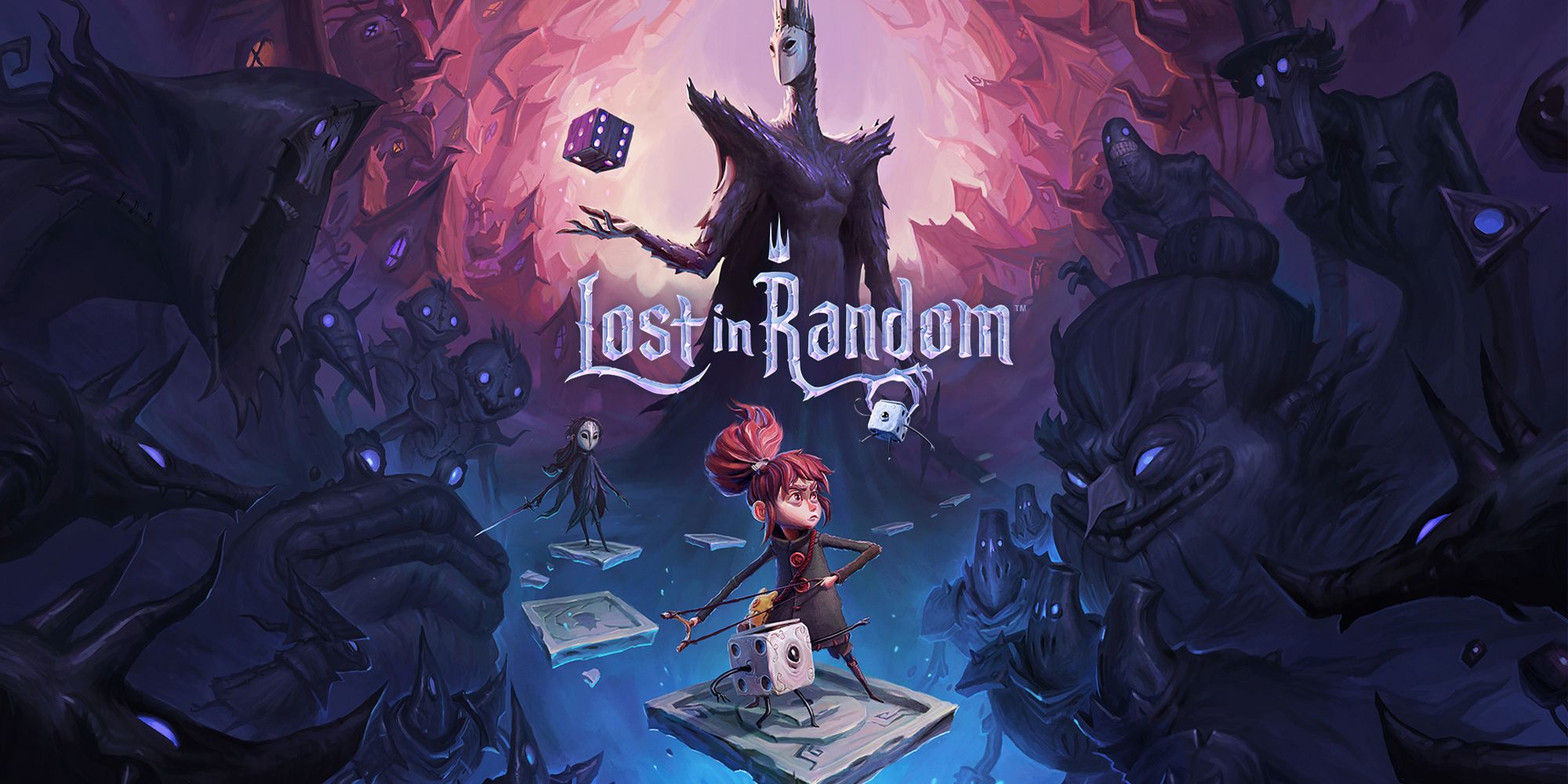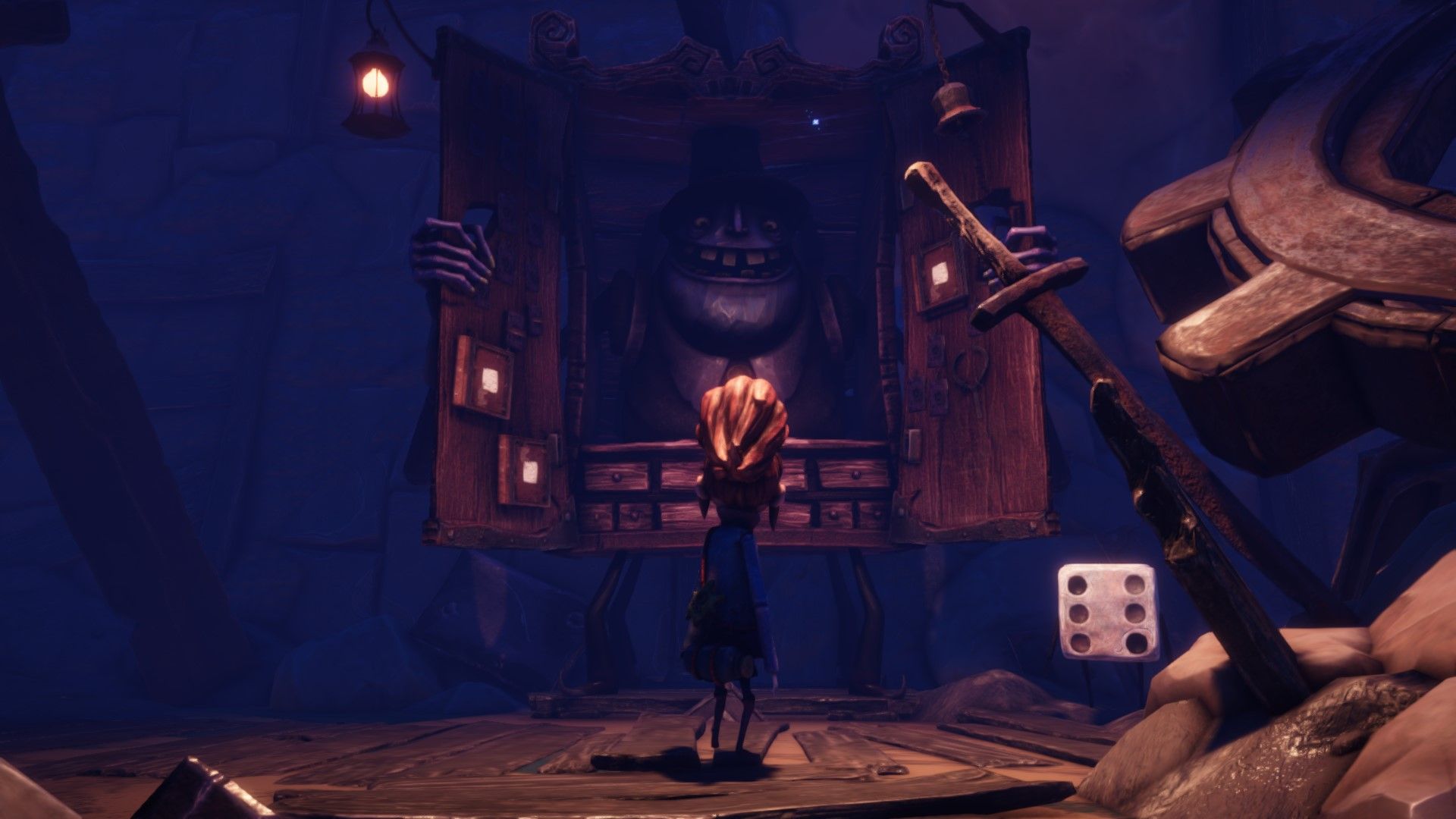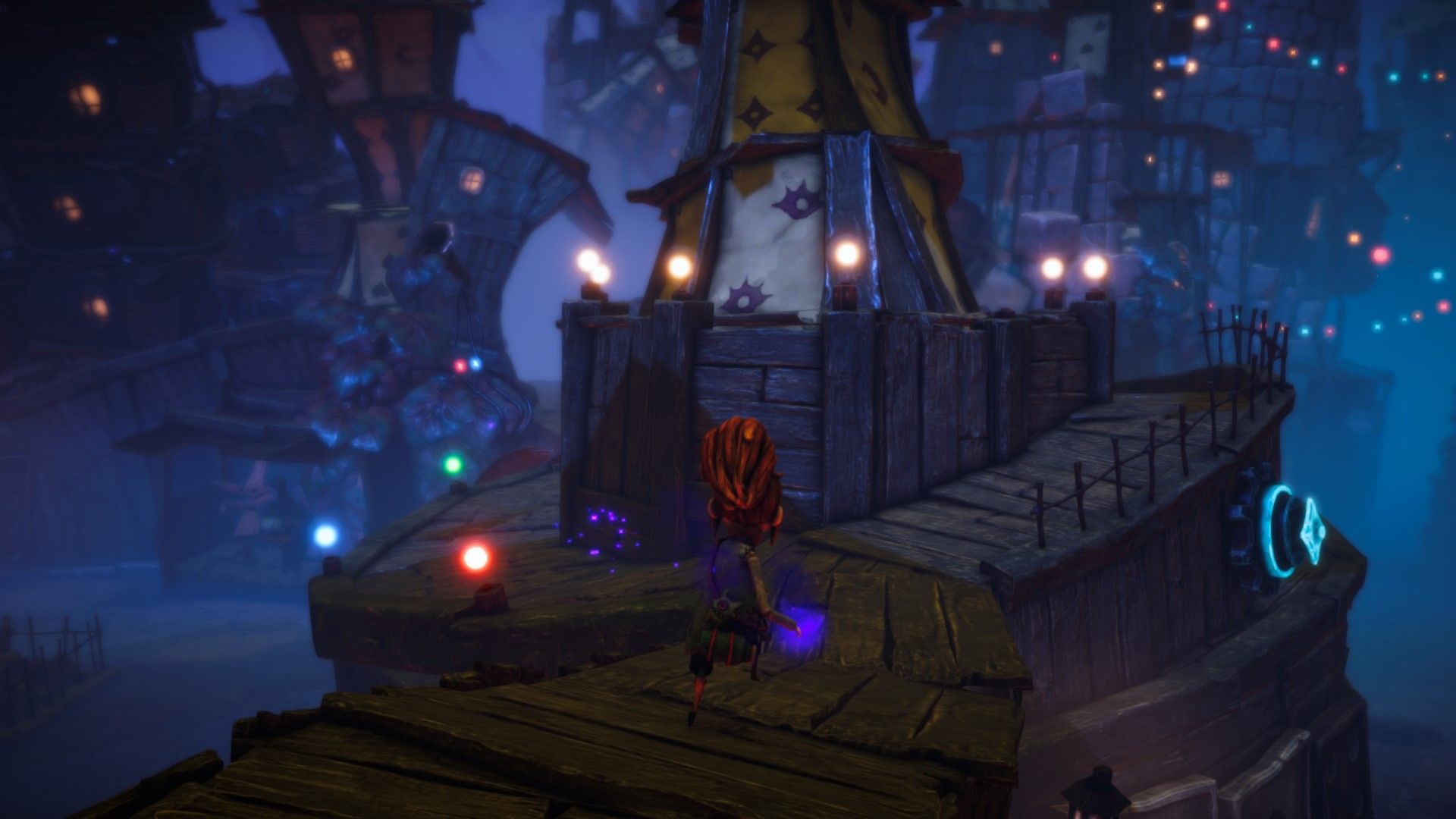Chance in video games is an oft-derided gameplay element. Regardless of whether it's a game mechanic, like damage or enemy placement, or a more meta aspect to the game, such as the dreaded loot box, the inclusion of randomized game mechanics can lead to frustration. This tends to solidify a design philosophy in games that seeks to minimize randomness’ influence on a given title's features. Lost In Random, a game developed by Studio Zoink! and published by EA, takes the opposite approach, making randomness a key element of both its story and gameplay.
Lost in Random’s story follows Even, a young girl born into the lowest region of society in the Tim Burton-esque world of Random, Onecroft, on her quest to save her sister Odd. After setting out, Even finds herself a strange ally in the form of Dicey, a sentient Dice, who has the ability to grant Even magical powers by simply rolling him. This quest takes the pair through each of Random’s six districts where they meet and help numerous other characters with their own problems as they desperately search for Odd in a traditional RPG narrative with several twists along the way.
Contrary to how it may first appear, Lost in Random can best be described as an RPG with some action elements. The game is mainly linear due to its story, but is structured so that each sequential district that Even visits in Random has its own hub areas to explore and sidequests that can be completed during that area’s storyline. These side missions tend to be no more than fetch quests or talk-a-thons, with the more complicated requiring some small amount of exploration, but they can offer some nice distractions from the critical path as well as some good rewards for players in the form of cards for battles or coins for shops.
Naturally, randomness plays a large role in the combat of Lost in Random thanks to the combination of a deck of ability cards and Dicey. The flow of each combat follows a distinct pattern, but what that leads to is always up to fate. It starts with Dicey absorbing crystals that fall off of enemies either as they die, or as Even shoots them off with her slingshot. These crystals allow a hand of ability cards to slowly form, with a full hand constituting five total cards.
Whenever the player wishes during this process, Dicey can be thrown, and the resulting roll determines how many points they have to spend on card abilities. Dicey starts out not being able to roll more than two thanks to being an incomplete die, but he gains the ability to roll higher over the course of the story. From giving Even weapons, to creating time distortion fields, to just making a slew of bombs, the abilities on these cards range quite widely and make for some interesting combat.
The problems that this otherwise novel combat system unfortunately runs into are twofold. Primarily, it’s very slow to get going, since Even doesn’t start a fight with access to any card abilities and must use her slingshot to slowly earn that privilege. However, even when she does get that far the second issue rears its head: The weapon combat in Lost in Random is very repetitive and can be frustratingly ineffectual with how little damage it does. Since this is the primary method of damaging enemies, it can get old fast.
Performance issues also hindered the experience in Lost in Random, though they were at least infrequent. While the game ran fine for the most part, there were some very serious crashes experienced during gameplay. While there will be a Day 0 patch for the retail version of the game that is intended to fix the problem, these issues were at the very least present during pre-launch gameplay.
Lost in Random is certainly a unique and interesting game, in spite of its flaws and aside from its inspirations. The art style may give the impression of journeying through a Tim Burton-inspired, imaginative landscape, but Lost in Random has its own identity that makes it worth exploring. Despite its faults, the combat's close similarities to 3D version of the Megaman Battle Network and Starforce series in all of the best ways makes it highly entertaining. Lost in Random is an innovative and enjoyable take on its genre, and a game that’s very easy to get lost in.
Lost in Random will be releasing today, September 10th, 2021, for Xbox One and Series X/S, Playstation 4 and 5, and PC on Origin and Steam. Screen Rant was provided with a digital Origin code for the purposes of this review.



